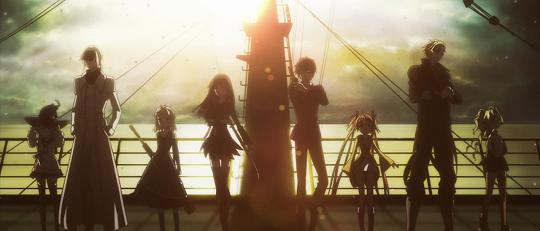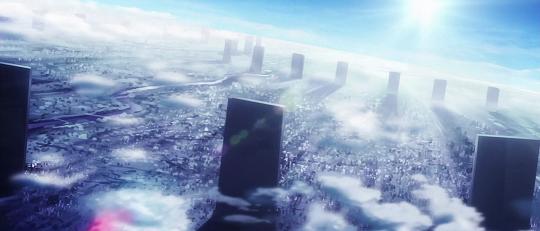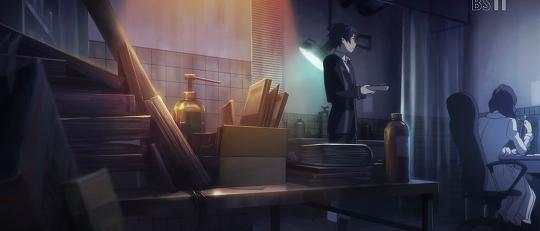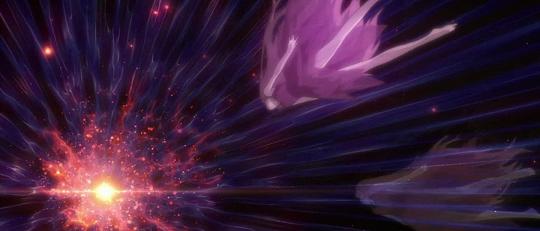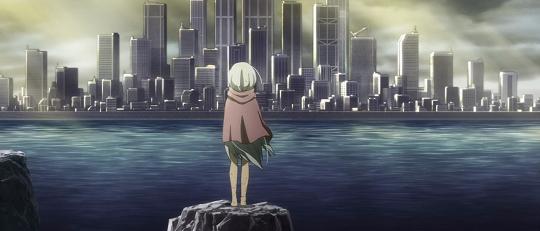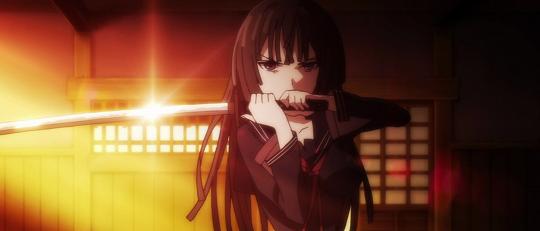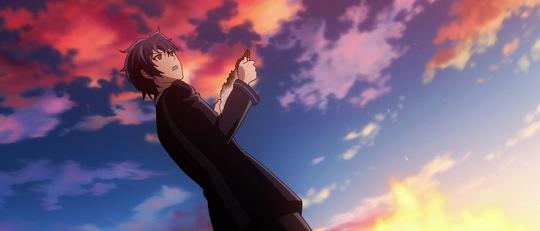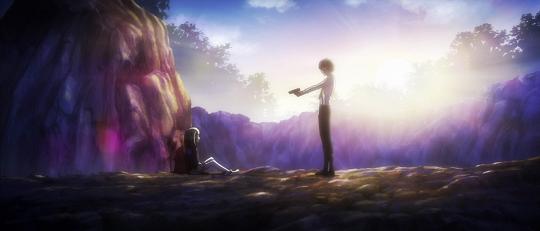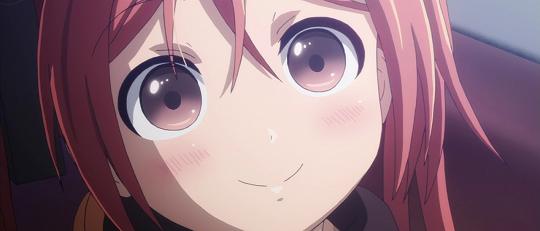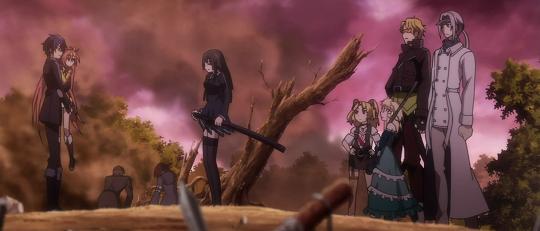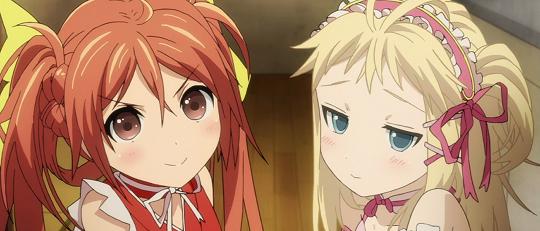Won’t someone please think of the children? Because that’s really all Black Bullet thinks about. Right at the heart of its world, ravaged by the giant insects known as Gastrea, is an employment structure that partners young men, “Enforcers”, with pre-adolescent girls, “Initiators”. Those children are of course genetically altered so to complement their red eyes they have phenomenal speed and strength, enough to fight the rampaging insects.
You might just sigh and slowly shake your head at such a set up - it’s peculiarly original yet feels overused, tapping into the same buddy-cop dynamic that innumerable other shows, anime or otherwise, have used. What’s worrying is that in between all of the bad CG, B-movie style monster bashing is a worrisome, suggestive undercurrent that slowly, insidiously, creeps in. There’s maybe just one too many bath scenes, a few too many expressions of unflinching adoration, and too many children saying things that can be misconstrued as sexual.
It starts innocuously enough with a gung-ho couple of episodes where the rules of the world are laid out: genetically altered children bad (but good), insects bad (definitely bad), Tokyo good? Yes despite being surrounded by immense, insect repelling monoliths - think 2001 sponsored by Raid - and supposedly the entirety of Japan devastated by overgrown stag beetles, the citizens of Tokyo are still able to enjoy rice and television and malls and cars without interruption. That’s besides the point though, we don’t need messy things like logistics and industry messing up our focus on adorable little kids.
Except, to counter-balance the high fructose pairing of Rentarou, serial loli magnet and perpetual do-gooder, and the sparky orange-haired Enju the series goes out of its way to maim, kill, or otherwise brutalise its child characters. When it first happens, a destitute girl near flat out murdered by local law enforcement, it’s shocking and seems like a statement of intent, a declaration of the chops this plot has.
As is often the case with something like this (I’m looking at you a Yozakura Quartet) it’s a lot of shock and awe but no follow-up. Rentarou of course plays the samaritan and rescues the girl but it otherwise doesn’t impact the story at all. In somewhat of an irony, despite the series’ best efforts to portray these children as damned by fate but champions of the future, they are instead demonstrated to be little more than blunt instruments to be switched out or, lamentably, as impetus for the protagonists. This is best illustrated by a late-stage death that, although touching, leaves barely a ripple in its wake with the relevant Enforcer shedding nary a tear before quickly slotting in the nearest replacement.
Rentarou is little better as he builds up a veritable kindergarten worth of children around him. Gotta catch ‘em all I suppose. It’s a shame because if it wasn’t for the persistently disturbing treatment of the children or the unspoken undertones to their relationships, the emotional and professional attachment Rentarou and Enju show would be the high point of the series. Instead we’re left with a couple of opening story arcs that stack up as many characters as possible without overburdening itself, followed by a full six episode arc that never quite feels as cohesive as it should.
The infrequent action scenes do fare a little better with pleasing interplay between the guns, blades and martial arts triumvirate but without enough opportunities to exhibit them. The smartly dressed harlequin antagonist of the first story is a good start but used far too early; the remaining stories meddle too deeply with politics that feel like they were written in crayon or Dynasty Warriors style “kill all the things” solutions to problems. It’s a situation not helped by a drama sinkhole after it’s revealed that the protagonist is half bionic, I-Robot style, and thus in spite of being shot, speared or beaten, his Q-like doctor friend will resurrect him. At least it looks pretty with beautiful gradated designs by studio Kinema Citrus, backed by a stirring if understated score by Shirou Sagisu of Evangelion fame.
Fundamentally though too much is retrospectively wrong with Black Bullet to let it be anything other than a mediocre action series. Things that don’t necessary raise a red flag upon watching, but when thinking back, it was obvious someone had their pants firmly on their head while writing it. So Rentarou, while looking for his diminuitive partner, asks an acquaintance about her; the issue being that this acquaintance is in a sewer, in the bad part of town and surrounded by twenty or so young girls. It’s probably fine though, he is a teacher after all. Or there’s the mercifully underplayed love triangle between the sword-wielding teen Kisara and the weapons dealer Miori, made somewhat more complicated when the latter provides a dud doomsday weapon and the former goes full-bore psycho in a bizarre change of character at the eleventh hour. Or Varanium, the wunder-metal that is pitched as being in short supply at the start of the series, yet by the end it wouldn’t be a surprise to see jock-straps made out of the stuff.
In short then, the series has its entertaining moments but the combination of mistreating its child characters both literally and metaphorically for quick-fix pathos, as well as having nothing outside of action scenes to hold one’s interest leaves a sour taste in what could have been a nuts-and-bolts bit of fun.
